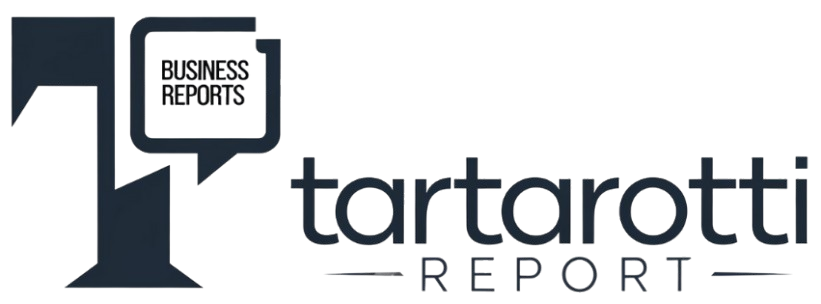Introduction:
The United States, in addition to being the world’s largest economy, offers a unique and attractive environment for establishing holding companies, especially for international investors and non-tax residents. With a federal system that allows significant autonomy to the states, the US presents a variety of options for corporate structuring and tax planning.
Recent figures show that more than 2 million corporations are formed in the US each year, with a growing number of international investors choosing specific states for their tax and privacy advantages. This impressive volume underscores the global confidence in the American legal and economic system.
In this article, we will explore in depth the benefits and opportunities of establishing a holding company in the US, with a special focus on tax-advantaged states, privacy considerations, and the impact of recent Beneficial Ownership Information (BOI) regulations for non-tax residents.
Part 1: Ready to Roll 🚀 – Basic Strategies and Practical Actions
Part 1, “Ready to Roll”, offers practical actions and immediate advice for entrepreneurs who need quick and effective guidance.

1. Fundamentals of Holding Structures in the USA
The Importance of Choosing a State for Registration
Selecting the state in which to register your holding company is crucial, as each state offers different advantages in terms of taxation, privacy and regulation.
Recommended States and Their Advantages
1. Delaware:
– Sophisticated and well-established corporate laws
– Court of Chancery specializing in corporate law
– Does not tax income from out-of-state sources
2. Wyoming:
– No state income tax for corporations or individuals
– Strong privacy protection for business owners
– Minimum capital requirements and flexibility in corporate structure
3. Nevada:
– No state income tax
– Strong asset protection laws
– No information sharing agreement with the IRS
4. Florida:
– No state income tax for individuals
– Business-friendly environment with minimal regulations
– Access to international markets, especially Latin America
2. Structuring Strategies for Non-Tax Residents
Tips for Structuring Efficient Holdings
1. Use LLCs: Consider using Limited Liability Companies (LLCs) for their flexibility and favorable tax treatment.
2. Tiered Structures: Implement a tiered holding company structure, with a main holding company in one tax-advantaged state and operating subsidiaries in other states as needed.
3. Robust Shareholder Agreements: Develop detailed shareholder agreements to protect the interests of non-resident investors.
Key Considerations Aligned with International Standards
– Be aware of reporting obligations under FATCA and CRS for US entities with foreign owners.
– Stay up-to-date on state and federal regulations, especially regarding foreign investors.
3. Privacy Protection and BOI Compliance
How to Develop an Effective Privacy Shield Strategy
1.Strategic State Choice: Opt for states like Wyoming or Nevada, known for their strong corporate privacy laws.
2. Use Registered Agents: Use professional registered agents to maintain an additional level of privacy.
3. Nominee Structures: Consider using nominee structures while remaining compliant with the new BOI regulations.
The Importance of BOI Compliance
– Understand the Beneficial Ownership Information reporting requirements introduced by the Corporate Transparency Act.
– Develop a robust system for maintaining and updating beneficial owner information.
Part 2: Deep Dive 🤿 – Technical Deep Dive into Advanced Strategies
Part 2, “Deep Dive”, provides in-depth analysis for those who want to dive into the technical and complex aspects of international finance.

4. Detailed Analysis of Tax Benefits by State
In-depth Exploration of Technical Aspects
1. Delaware:
– State income tax exemption for companies not operating in the state
– Does not tax intellectual property royalties
2. Wyoming:
– No corporate sales, franchise or gross receipts taxes
– Extremely low company formation and maintenance fees
3. Nevada:
– No corporate income tax
– No requirement to name directors or shareholders in public records
4. Florida:
– Relatively low corporate tax rate (5.5% in 2023)
– Significant tax exemptions for certain types of business
Case Study
International Investment Holding in Delaware
A group of Latin American investors established a holding company in Delaware to manage real estate investments in the USA. The structure allowed for:
– Efficient centralization of investments in multiple states
– Significant tax optimization at the state level
– Enhanced protection against litigation through the Delaware Court of Chancery
Result: Estimated tax savings of 15% per year and a 40% reduction in legal costs related to corporate disputes.
5. Implementation of BOI-aligned Corporate Governance Structures
Recommendations for Effective Management Tools
1. BOI Compliance Systems: Implement specialized tools to track and report information from final beneficiaries.
2. Corporate Document Management Platforms: Use secure systems to keep corporate records up to date and accessible.
3. KYC/AML Solutions: Adopt robust Know Your Customer and Anti-Money Laundering systems, crucial in today’s US regulatory environment.
Tips for Maximizing the Use of These Resources
– Establish a governance committee with expertise in BOI regulations and international compliance.
– Implement regular auditing processes to ensure ongoing compliance with state and federal requirements.
6. Advanced Asset Protection Strategies for Non-Residents
Techniques for Identifying and Managing Risks
1. Use Series LLCs: In states that allow it, such as Delaware and Wyoming, use Series LLCs to compartmentalize risks between different assets or operations.
2. Implementation of Domestic Trusts: Consider using domestic trusts in states with favorable laws, such as South Dakota, for additional asset protection.
3. Captive Insurance Strategies: Explore the creation of captive insurance companies in states like Vermont for risk management and potential tax benefits.
Action Plans for Adverse Situations
– Develop detailed contingency plans for litigation scenarios or regulatory investigations.
– Establish protocols for rapid restructuring or relocation of assets between states, if necessary.
7. Innovations in Financial and Investment Structures for Non-Residents
Discussion on Emerging Trends
1.Startup Investment Structures: Explore specialized investment vehicles for participation in U.S. startups, taking advantage of state tax incentives.
2. Real Estate Crowdfunding Platforms: Use LLC structures in favorable states to participate in real estate investments via crowdfunding.
3. Cryptoasset Investment Vehicles: Establish structures in states with cryptoasset-friendly regulations, such as Wyoming, for investments in digital assets.
Tips for Maintaining Flexibility
– Keep abreast of the latest innovations in financial and technological regulation in the different states.
– Cultivate relationships with specialized service providers in multiple states to be prepared for rapid changes in strategy.
Conclusion
Establishing a holding company in the United States offers an impressive range of benefits for international investors and non-tax residents. The combination of a robust legal system, sophisticated financial markets and the flexibility offered by the different states creates a unique environment for corporate structuring and asset protection.
However, it is crucial to approach the use of structures in the US with a high degree of sophistication and responsibility. The regulatory landscape, especially with the introduction of the Corporate Transparency Act and BOI requirements, is constantly evolving. The key to success lies in balancing the tax and privacy advantages offered by specific states with the need for full compliance with federal and state regulations.
For those seeking a sophisticated platform for their global investment strategies, a US holding company, when structured and managed properly, can offer a powerful combination of legal protection, tax efficiency and access to world-class investment opportunities. As with any complex international financial strategy, the guidance of experts in US corporate law, international accounting and estate planning is indispensable for successfully navigating this dynamic and highly regulated environment.
When considering the establishment of a holding company in the US, remember: the goal is not just tax optimization or asset protection, but the creation of a strategic platform that can leverage the unique advantages of the US system to drive your global investment objectives in an efficient and compliant manner. With proper planning and careful execution, a US holding company can be a powerful tool to expand your international portfolio, protect your assets and create a solid foundation for sustainable growth in one of the world’s most dynamic and respected business environments.
FAQs
1. Q: What are the typical costs associated with maintaining a holding company in the US?
A: Costs vary significantly by state, but generally include:
– Initial registration fee: $50-$500 USD
– Annual maintenance fee: $50-$300 USD
– Registered agent costs: $100-$300 USD per year
– Compliance and accounting costs: $1,000-$5,000 USD annually, depending on complexity
The total annual investment can vary from $2,000 to $10,000 USD or more, depending on the state and complexity of the structure.
2. Q: How do the new BOI requirements affect the privacy of non-resident investors?
A: The Corporate Transparency Act requires certain companies to report information about their ultimate beneficial owners. This affects privacy in two ways:
– Detailed beneficiary information must be provided to FinCEN
– This information is not public, but can be accessed by government agencies
To maintain as much privacy as possible:
– Choose your corporate structure and registration status carefully
– Use professional compliance services to ensure accurate and timely reporting
– Consider layered structures that can limit direct exposure of individuals
3. Q: What are the key tax considerations for non-residents when establishing a holding company in the US?
A: Key tax considerations include:
– Withholding tax on dividends (generally 30%, but can be reduced by tax treaties)
– Potential application of Foreign Capital Gains Tax (FIRPTA) on real estate investments
– Federal and state tax filing obligations
– Planning to avoid the unintentional creation of a “taxable presence” in the US
It is crucial to work with a specialist in international taxation to structure the holding company optimally.
4. Q: How do the different states in the US compare in terms of asset protection for non-residents?
A: Some states stand out:
– Nevada: Offers strong protection against creditors and has robust corporate secrecy laws
– Wyoming: Provides excellent privacy protection and has favorable LLC laws
– Delaware: Although less focused on privacy, offers sophisticated legal protection through its specialized court system
– Alaska and South Dakota: Known for their favorable trust laws for asset protection
The choice depends on the investor’s specific objectives and risk profile.
5. Q: What are the potential risks of using a holding company in the US for non-residents and how can I mitigate them?
A: Potential risks include:
– Exposure to litigation in the US legal system
– Tax complexities, especially if there are active operations in the US
– Increasing compliance costs, especially with new regulations such as BOI
– Potential loss of tax benefits in your home country
To mitigate these risks:
– Implement a robust corporate structure with appropriate legal advice
– Keep meticulous records and be proactive in regulatory compliance
– Consider using liability insurance and other forms of protection
– Keep up to date with legislative changes that may affect your structure
6. Q: How can US holding companies be used effectively for global investments by non-residents?
A: U.S. holding companies can be used effectively for global investments in several ways:
– Access to Capital Markets: Use the holding company to access U.S. capital markets, including stock exchanges and private equity markets.
– Investment Platform: Structure the holding company as a platform to manage investments in multiple countries, taking advantage of the tax neutrality of certain states.
– Joint Venture Vehicle: Use the holding company to establish joint ventures with US companies for global expansion.
– Intellectual Property Protection: Centralize global intellectual property in the US holding company for legal protection and tax efficiency.
– Financing Structuring: Take advantage of the sophisticated US financial market to structure complex financings for global operations.
It is crucial to work with consultants experienced in international investment strategy to optimize the structure according to your specific objectives.
7. Q: What are the implications of FATCA for non-residents with US holdings?
A: The Foreign Account Tax Compliance Act (FATCA) has significant implications:
– Information Reporting: Foreign financial institutions must report accounts held by U.S. persons, which may include U.S. holdings of non-residents.
– Withholding: U.S. source payments may be subject to 30% withholding if there is no FATCA compliance.
– Increased Disclosure: Non-residents with US holdings may face increased scrutiny from their own tax authorities.
To mitigate impacts:
– Maintain clear and complete documentation of all transactions and corporate structures.
– Consider careful structuring to minimize unnecessary FATCA exposure.
– Work with FATCA compliance experts to ensure full compliance.
8. Q: How does the choice of state for the holding company affect business opportunities in the US?
A: The choice of state can significantly affect business opportunities:
– Delaware: Preferred by many corporations and investors due to its legal sophistication, which can facilitate negotiations and corporate transactions.
– New York: Offers close access to Wall Street and the financial market, ideal for holding companies focused on investments.
– California: Beneficial for holding companies involved in technology or seeking access to the Silicon Valley innovation ecosystem.
– Florida: Advantageous for holding companies focused on trade with Latin America, due to its geographical position and cultural connections.
– Nevada or Wyoming: May be preferred for operations that value privacy and asset protection.
Carefully consider your long-term business objectives when choosing the state of registration.
9. Q: What are the specific considerations for international startups wishing to establish a presence in the US through a holding company?
A: For international startups, consider:
– Access to Venture Capital: States like California and New York offer greater proximity to VC investors.
– Visa structure: Evaluate options such as E-2 visas (for treaty countries) or EB-5 visas for founders.
– Intellectual Property: Consider transferring IP to US entity for valuation and protection.
– Tax Structure: Plan carefully to optimize taxation between your home country and the US.
– Acceleration Programs: Choose locations with robust startup ecosystems and acceleration programs.
10. Q: How do recent trends in ESG (Environmental, Social, and Governance) affect the structuring of holdings in the US for non-residents?
A: ESG trends are having a growing impact:
– Disclosure Requirements: Increased reporting requirements on ESG practices, especially for larger companies or those seeking public investment.
– Investment Opportunities: States like California and New York are at the forefront of ESG initiatives, offering opportunities for holdings focused on sustainable investments.
– Reputation and Compliance: Compliance with ESG standards can enhance the holding company’s reputation and facilitate partnerships and investments.
– Tax Incentives: Some states offer incentives for businesses that adopt sustainable practices or invest in clean technologies.
Consider incorporating robust ESG practices into your holding structure to align with these global trends.
11. Q: What are the best practices for non-residents to maintain continuous compliance with state and federal regulations in the US?
A: To maintain continuous compliance:
– Dedicated Compliance Team: Establish a team or hire specialized corporate compliance services in the U.S.
– Regular Audits: Conduct periodic internal audits to ensure compliance with state and federal laws.
– Record Updates: Keep all corporate records and final beneficiary information up to date.
– Legislative Monitoring: Keep track of changes in laws and regulations that may affect your holding company.
– Continuous Training: Ensure that all directors and executives are up-to-date on their legal and compliance responsibilities.
– Relations with Authorities: Maintain an open and proactive dialog with relevant regulatory authorities.
Proactive compliance not only mitigates legal risks, but also strengthens the holding company’s reputation and credibility in the US market.
When navigating the complex holding company environment in the US as a non-tax resident, it is crucial to maintain a holistic approach that considers not only the immediate benefits, but also the long-term implications in terms of compliance, business strategy and global reputation. The US offers a sophisticated and well-regulated environment, but requires a corresponding level of diligence and expertise in implementing and maintaining corporate structures.
The key to success lies in balancing tax optimization and structural efficiency with solid corporate governance and full compliance with constantly evolving regulatory standards. With proper planning and the support of experienced professionals, a holding company in the US can serve as a powerful platform for effectively achieving international financial and business objectives.

Member of the IMA (Institute of Management Accountants) – USA
Member of the AICPA (American Institute of CPAs) – USA
Member of AAII (American Association of Individual Investors) – USA
Member of AAA (American Accounting Association) – USA
Member of the FMA (Financial Management Association) – USA
These associations not only attest to Kleyton’s commitment to professional excellence, but also ensure that his knowledge is always at the forefront of international financial and accounting practices.
With a robust academic background, including a Bachelor’s degree in Accounting and MBAs in International Finance and Accounting, as well as in International Business, Kleyton offers a unique and comprehensive perspective on the global business landscape.
Through the Tartarotti Report, Kleyton invites visionary entrepreneurs and executives to connect, explore opportunities for collaboration and, together, successfully navigate the complex world of international corporate finance.







